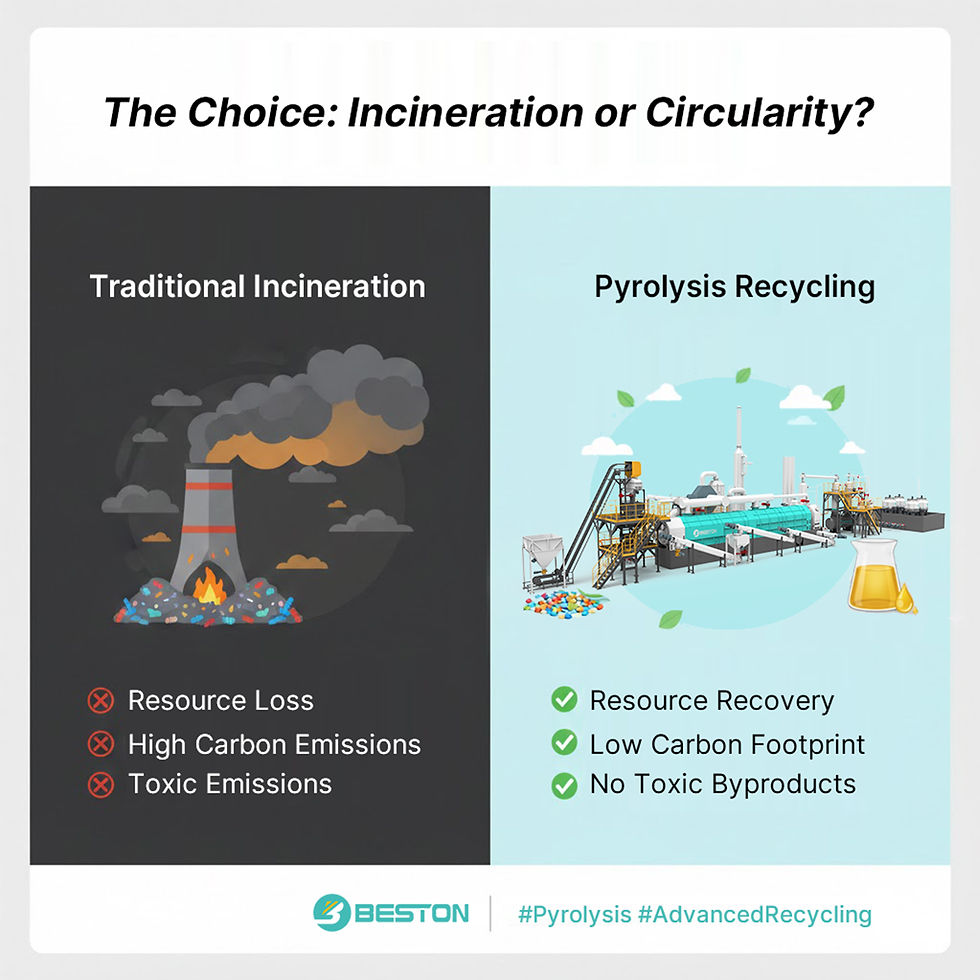Investing in a Charcoal Making Machine: A Profitable and Sustainable Business Opportunity
- lee784287
- 2025年10月16日
- 讀畢需時 2 分鐘
In recent years, charcoal production has transformed from a traditional, labor-intensive industry into a modern, eco-friendly business opportunity — thanks to the advancement of charcoal making machines. Whether you are an investor, a small business owner, or someone exploring renewable energy projects, investing in a charcoal making machine can be a smart and sustainable decision.
What Is a Charcoal Making Machine?
A charcoal making machine, also known as a biomass carbonization machine, converts organic waste (such as wood, coconut shells, sawdust, rice husks, and other agricultural residues) into charcoal, biogas, wood vinegar, and tar through a process called pyrolysis.

Why Invest in a Charcoal Making Machine?
High ROI (Return on Investment)
The demand for charcoal is constantly increasing due to its use in heating, metallurgy, and cooking. A single production line can bring stable income once raw materials and markets are secured.
Low Raw Material Cost
Biomass waste is widely available and often free — such as crop stalks, coconut shells, or wood scraps. Turning waste into value means high profit margins.
Eco-Friendly & Compliant with Global Green Policies
Governments around the world are encouraging waste-to-energy projects. Charcoal making machines meet sustainability goals and can even qualify for carbon credit programs.
Scalable Business Model
From small-scale backyard setups to fully automated continuous carbonization plants, investors can start small and expand as profits grow.
Key Factors to Consider Before Investing
Raw Material Source: Ensure stable and low-cost access to biomass.
Machine Type: Choose between batch, semi-continuous, or fully continuous systems depending on your budget and capacity.
Energy Efficiency: Opt for machines with heat recovery systems to reduce fuel consumption.
After-Sales Support: Reliable suppliers offer installation, training, and maintenance services — critical for long-term success.
Market Demand: Study local or export markets for charcoal and by-products.
Potential Profit Analysis
Let’s take an example:
If you process 1 ton of sawdust, you can produce approximately 300 kg of charcoal, plus biogas and wood vinegar. Depending on local charcoal prices (around $400–$700 per ton), the profit margin can reach 40% or more.
Conclusion
Investing in a charcoal making machine is more than just a business — it’s a step toward a greener and more sustainable future. By converting waste into energy, you can build a profitable enterprise while contributing to environmental protection.
Whether you aim to start a small local project or a large-scale charcoal production plant, this industry offers great growth potential and long-term stability.



留言